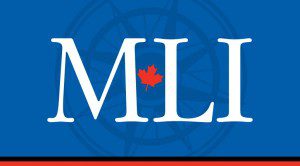 Recent demonstrations in Russia and Belarus should worry the authoritarian regimes there, writes Marcus Kolga. It also demonstrates the need for Canada to adopt Magnitsky legislation to help deter abuses in the future.
Recent demonstrations in Russia and Belarus should worry the authoritarian regimes there, writes Marcus Kolga. It also demonstrates the need for Canada to adopt Magnitsky legislation to help deter abuses in the future.
Last weekend thousands of brave Russians and Belarusians took to the streets of cities across their countries to demonstrate against crippling corruption and to demand freedom and democracy.
While violent mass arrests accompanied the peaceful protests, triggering global concern, they also sparked hope that change may be possible; hopes which were long thought to have been snuffed out by the assassination of charismatic Russian opposition leader Boris Nemtsov and the exile of his Belarusian counterpart, Andrei Sannikov.
On Saturday, in the Belarusian capital of Minsk, protestors risked crackdown by the Lukashenko regime as they called for an end to an extremely unpopular “parasite” tax imposed on unemployed Belarusians and for the country’s leader to step down.
The regimes forces were seen storming the streets of Minsk — arresting activists and innocent bystanders without discrimination.
Videos emerged on social media of Belarusian senior citizens being roughed up and detained while other protestors were viciously beaten. The regimes forces were seen storming the streets of Minsk — arresting activists and innocent bystanders without discrimination.
Teetering between Europe and Russia, the regime in Minsk controls the weak Belarusian economy, which relies heavily on Kremlin handouts in order to survive. Paralyzed by statism and rampant corruption, Belarusian living standards are among the lowest in Europe and served as the major trigger for Saturday’s protests.
For the Kremlin, maintaining a strong pro-Russian government in Minsk is a priority due to Belarus’ proximity to the Russian enclave of Kaliningrad and its strategic buffer position between it and Europe.
As Vladimir Putin watched protests escalate in Belarus on Saturday, his regime was unlikely prepared for the scale of protests that would sweep across Russia the following day. Russians took to the streets Sunday after anti-corruption crusader, Alexey Navalny, published a report detailing the vast luxuries amassed by Russian Prime Minister Dimitry Medvedev, through alleged gross corruption.
Sunday’s demonstrations were among the largest that Russia has seen since the collapse of the Soviet Union.
Sunday’s demonstrations were among the largest that Russia has seen since the collapse of the Soviet Union. Rallies that were organized by activists, including opposition leader, Boris Nemtsov in 2012, were limited to Moscow and St. Petersburg. The latest actions were remarkable in that they took place in remote cities and regions that were earlier believed to be completely obedient to Putin.
In Russia, nearly all media is controlled by the regime. In a country where the Internet is rarely available outside major urban centres, messaging by pro-democracy activists is usually limited to large urban centres, like Moscow and St. Petersburg.
Some estimates place the overall number of participants at around 70,000, with marches taking place as far away from Moscow as Vladivostok in the far east and Murmansk in the far north. That Russians, young and old, took to the streets, for example, in the remote Dagesgtani city of Makhachkala is a significant achievement and speaks to the true depth of domestic dissatisfaction with the Putin regime.
One iconic photo, shared on social media, shows two children clinging to the top of a street lamp, avoiding arrest by a policeman in riot gear who looms menacingly in the foreground of the photo. Another photo shows a woman being dragged away by riot police, who had just had lunch with her children and sisters in a nearby McDonald’s.
For activists seeking a silver lining, the size and breadth of these protests may indeed mark the beginning-of-the-end for the Putin regime.
In an attempt to explain away the participation of youth in the protests, Vladimir Putin’s chief propagandist, Dmitry Peskov told reporters that “underage children were told they would be paid if they were detained.” The Kremlin also refused to acquiesce to demands from the international community to release hundreds of protestors and bystanders who had been arrested, including opposition leader Alexey Navalny.
Canadian politicians and media…should all question, with deep skepticism, any approaches from Embassy staff and other groups claiming to represent the Russian community in Canada.
The same explanation will be fed to Canadian politicians and media from the Russian embassy in Ottawa, who should all question, with deep skepticism, any approaches from Embassy staff and other groups claiming to represent the Russian community in Canada.
Instead, the situation in Belarus and Russia should serve to further demonstrates the need for Canada to adopt Magnitsky legislation, which will help deter the abuse of rights in the future.
US and European Magnitksy laws, which place visa bans and asset freezes on human rights abusers, likely helped prevent greater violence and abuse against protestors in Russia and Belarus. Canada will help protect global pro-democracy, anti-corruption and human activists by doing the same.
Marcus Kolga is a documentary filmmaker, digital strategist, human rights activist and the publisher of upnorth.eu. He is a senior fellow at MLI’s Foreign Policy Centre and is an expert on Russian and Central and Eastern European affairs.




